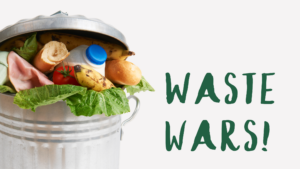Are meals a battlefield at your house? Do you struggle to get your children to try anything that isn’t beige? This week, member Margaret reminds us that all children will benefit from learning more about food and starting a dialogue with fussy eaters enables them to become part of the solution. Without further ado, let’s talk tactics!
Ask the parent of a fussy eater at what age their child should have a say in what they eat and the answer might be, “Never!” That would definitely be my answer on a bad day with my fussy eater. But under normal circumstances, when I am feeling a bit more rational, my answer would be, “Your child should always have a say in what they eat!”
It is my job as the parent to provide my children with the nutritious food they need to grow and develop into healthy, happy people. It is also my job to teach them what their bodies need to function properly, such as water, leafy greens, whole grains and lots of physical activity. If I can do this, then I should have a child that is capable of making good food choices.
The obstacles facing parents
Unfortunately, when you are the parent of a fussy eater, there are a number of obstacles to overcome, such as:
- The dislike of colourful fruits and vegetables.
- The sensitivity to food textures.
- The craving for sugary and/or salty foods.
- The belief that tomato sauce counts as a vegetable!
Making the job even harder for parents are issues like:
- Happy smiling cartoon characters on the packaging of less than nutritious food items.
- Checkout aisles stuffed with lollies and chocolate bars.
- School canteen menus that include sugary drinks and numerous ‘occasional’ foods.
- Fundraising campaigns that are entirely based on the purchase of candy.
So how can you let your child have a say?
Well, you can talk to them about food. I believe having a good dialogue about food is the key, such as:
- Talk to your child about why they need to eat foods of different colours and textures.
- Help them understand how their body works and why it is important to choose these foods.
- Set rules about what foods are considered ‘occasional’ foods in your house.
- Help them to understand why you will say no to these items in the shops.
If you are talking to your child about food in a positive, non-emotional way then they are better prepared to make choices that are better for them.
The saying, “Knowledge is power” is very true when it comes to children and food. Since I have been talking to my daughters about food, they are less likely to ask me for the cartoon branded food with abundant food additives, and they are more accepting of the need to eat different foods and not just the ones they like.
It doesn’t matter at what age you begin to have this dialogue. If you want your child to have a say in what they eat and to understand why it is important to include a variety of different foods in their diet, then start talking to them about all the food they eat and the effect that it will have on their bodies. When you are comfortable about letting your child have a say in what they eat, you are also giving them a sense of control which does wonders for their self-esteem.





One Response
Surely “Knowledge is power” is very true when it comes to children and food. the parent of a fussy eater at what age their child should have a say in what they eat…..right ..thanks for this post..